This post is appearing in an unusual format on this blog: I’m sharing my first impressions on the lyrics of All I Ever Am, a song that hasn’t been officially released yet – and I’m doing so without having heard the music. On 27th October, images of the album cover and lyrics from Songs of a Lost World surfaced in fan groups, so for now, I’m diving into the world of this song through its lyrics alone, attuning myself to the album’s likely melancholic and dark atmosphere.
Reading the lyrics, I feel a sense of timelessness. The song's structure itself mirrors this timeless floating: “I think too much of all that’s gone,” Robert begins with the past, later turning to “I think too much of all to come,” contemplating the future. Between these two, the present almost feels trapped, perhaps explaining why “never quite enough” seems to define every moment. Robert delves deep into his past, into choices that could never have been entirely perfect or complete. He describes memories as if they were hazy, decaying impressions of something once real, reinterpreted and blurred over time. Feelings and experiences fade, and the poetic line “hopelessly misremember” suggests that perhaps memories were never accurate – or can never be exact enough to find meaning within. As he says, “Hopelessly misremember,” it’s as though his own memories betray him. The decisions he made in his younger days now appear as reflections of a recklessness borne of ignorance and a lack of consequences. Each line in the song shows that, despite seeking fulfilment, he somehow never quite found it – neither within himself nor with others.
The line “weary dance with age” is especially evocative: in Robert’s earlier work, the motif of dance often symbolised joy and love (think of Just Like Heaven) – but here it morphs into an image of resignation and exhaustion. This transformation perfectly illustrates how he reinterprets his own motifs over time.
The Fear of Inner Emptiness
The 39 from the 2000 Bloodflowers album contrasts sharply with the melancholic yet searching mood of these new lyrics. In 39, with his 40th birthday looming, Robert feels his life as a musician is almost over. The song doesn’t just reveal a profound personal crisis of burnout but also has a feeling of definitive closure. 39 left a lasting impression on me back then because in it, Robert seemed to be saying goodbye, marking what was then assumed to be the final chapter of his creative journey.
And yet, 24 years later, here we have another deep, honest piece of writing where each line reveals the changes brought about by time and internal processes. If in 39 Robert was teetering on the brink of burnout, then now, in All I Ever Am, we find a renewed, complex self-reflection. He may never have imagined he’d walk this path again, exploring such depths within himself and in the passage of time. The struggle with self-worth and feelings of inadequacy remains, yet it seems he now returns with an understanding shaped by the intervening years. Instead of burnout, now he wrestles with timelessness and inner voids, as though he must continuously reshape himself to find inner peace.
The temporal tension is intriguing within the song’s structure: the lines “I think too much of all that’s gone” and “I think too much of all to come” almost squeeze the present between them – perhaps that’s why every moment is “never quite enough.” The subtle difference between “reflecting time and memories” and “intending time and memories” suggests his relationship with memories is shifting: from passive reflection to something more intentional, more deliberate.
The Grip of the Future and the Path Toward a Dark Stage
As he contemplates the future, he sees an empty, dark stage before him, where only song and echo remain. This stage feels like a metaphor for the emptiness of life’s end and the unattainable sense of complete self-understanding. The lyrics don’t just bring forth nostalgia for the past or fear of the future but instead reflect a gradual inner emptiness – a dance of death within that recalls Robert’s solitary figure on a dark, empty stage. This image resembles the symbolism of ageing and ultimate reckoning, where the inner void seems deeper and more infinite than ever.
The central idea of All I Ever Am is the perpetual lack of self-worth. Robert somehow always feels inadequate, even when he reflects on his current state. This isn’t a simple anxiety; it’s a profound duality: he is both the one reflecting and the one he cannot fully grasp. Emptiness seems to be a recurring motivator in both his art and self-discovery. In these lyrics, emptiness almost becomes the space for realisation – a peace found within the infinite quest for oneself.
All I Ever Am: An Inner Labyrinth
All I Ever Am offers us a mirror, exposing our uncertainties and inner anxieties – everything we tend to bury deep to avoid facing it. The song’s message is both courageous and frightening: to stop, face inner ghosts, and realise that self-discovery and self-awareness won’t necessarily provide answers – yet perhaps this realisation offers a fleeting sense of peace.
The phrase “empty out my mind” also carries a fascinating duality: it seems both frightening (since he dreads it) and potentially liberating (since it could rid him of ghosts and dreams). This aligns with the Buddhist concept of the “empty mind,” which seeks a liberated, non-judgmental state of consciousness. The rhythm and circular thoughts create a labyrinthine structure that almost mirrors the internal search unfolding within the lyrics.
Ultimately, All I Ever Am feels like Robert Smith’s time-travel, an endless struggle with himself as he tries to find his true self, caught between past and future. This journey, however, no longer leads to closure, as in 39, but reveals slow, internal metamorphoses within his own inner world. Over the 24 years since, Robert has reconnected with music and introspection, shedding new light on questions he may not have fully understood before.
All I Ever Am: The Paradox
The song title is especially interesting and revealing in Robert Smith’s world, as it carries a hidden paradox. The pairing of “ever” and “am” expresses a continuous self-search, where Robert is constantly trying to find and define himself in the present – yet this goal remains forever unattainable. “Am” in the present tense implies a momentary certainty, as if he’s reached a point where he could declare: This is me. In contrast, “ever” lends a timeless, elusive quality to this present state, implying a process, as if self-understanding always exists somewhere in the past or future, never truly whole in the present.
This duality is paradoxical because while Robert seeks his self-understanding and wholeness, the ever-shifting goal of being fully “present” remains unreachable. All I Ever Am becomes a self-enclosed loop, where identity is both near and distant, a present state of being that never fully arrives. The title thus perfectly encapsulates the song’s message, shaping the longing for self-understanding into a paradoxical and eternally elusive journey – one that perhaps will never end for Robert.
This single line, the title itself, is a stroke of genius: in its simplicity, it manages to capture an incredibly complex state of being – perhaps even an ars poetica. This is what truly makes Robert Smith who he is, and what has drawn people to his lyrics for decades: the profound meanings woven into his words, the unique magic he creates with language. His ability to express grand, universal questions within everyday words confirms, time and again, why he has become a cult figure: in his words, every word is weighted, and in each line lies the timeless question of who we truly are.
The Spell of the Song: Enforced Time Travel for the Listener
Perhaps the song’s greatest strength lies in how it doesn’t merely talk about time and memories but actively draws us into this process. It’s a strange spell: as Robert looks back on his own past, he compels us to reflect on The Cure’s legacy, to capture fleeting moments, to recall songs and memories. It’s like a mirror that not only reveals his self-reflection but also brings forth our own.
This “enforced retrospection” is especially surprising in a song we haven’t even heard yet – solely through the power of its words, it draws the reader into this timeless journey. As Smith “hopelessly misremembers,” we, too, begin to reinterpret past songs in this new context. This is Smith’s unique talent: he not only describes the process of memory and self-reflection but, as he faces himself, we cannot help but do the same.
And perhaps this is where the song’s true beauty lies: while it speaks of incompletion, of eternal absence (“never quite enough”), it completes an experience by linking the past with the present, the artist with the listener, memory with reinterpretation. The last line, “if I just stop,” is left unfinished – just as our journey through The Cure’s universe remains open-ended.
Of course, these are just my first impressions based purely on the lyrics. I’m curious to see, in a few days when we can hear the entire track, how the music and arrangement will deepen this image. Will it add something to the content, perhaps open up new layers of interpretation, or maybe reinforce everything the lyrics suggest on their own?

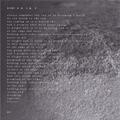
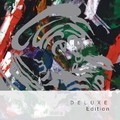
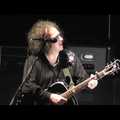
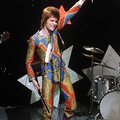
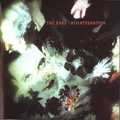
A bejegyzés trackback címe:
Kommentek:
A hozzászólások a vonatkozó jogszabályok értelmében felhasználói tartalomnak minősülnek, értük a szolgáltatás technikai üzemeltetője semmilyen felelősséget nem vállal, azokat nem ellenőrzi. Kifogás esetén forduljon a blog szerkesztőjéhez. Részletek a Felhasználási feltételekben és az adatvédelmi tájékoztatóban.